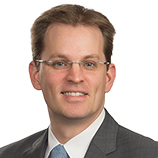Boyd & Jenerette Prevails on Misrepresentation Defense
November 6, 2020 by boydjenerette on News
On October 2, 2020, Judge Ralph Humphries entered an order denying benefits to a claimant on the grounds that he violated the misrepresentation provisions of Florida Statute §440.105(4)(b) and §440.09(4). In the case of All State Steel Inc of Jacksonville v. Dully Denis, Jr., (OJCC# 20-002277RJH), Blake Hood, Esq. successfully defended a claim for benefits in which the claimant admittedly made false statements to three different medical providers following an on the job accident. The claimant’s justification was that after his accident on the jobsite, the claimant’s supervisor made statements including “what I don’t see, I don’t know. Make something up.”
The supervisor in question testified live and denied making any such statements to the claimant and had in fact asked the claimant if he needed medical attention that was declined.
The Employer/Carrier asserted that the claimant violated the provisions of §440.105(4)(b) and §440.09(4), frequently referred to as the "fraud defense." To establish a violation of §440.105(4) (b), so as to justify the ultimate sanction of denial of any further benefits under Chapter 440, the E/C has the burden to prove by the preponderance of the evidence that a claimant knowingly or intentionally engaged in one of the acts prohibited by the statue for the purpose of securing workers' compensation benefits.
Especially compelling in the JCC’s analysis was the case of Cal-Main Foods vs. Howard, 225 So.3d 898 (Fla. 1st DCA 2017). In that case, the Court reversed a JCC’s denial of the E/C’s misrepresentation defense under Florida Statutes §440.105(4) (b) and §440.09(4). The claimant, Howard, had falsely reported his injuries occurred when struck in the head with a baseball bat rather than at work. This was an admittedly false statement allegedly made due to his belief he would not receive medical treatment if he reported this as a work-related accident. While the JCC determined claimant made that and other misrepresentations, she declined to terminate claimant’s entitlement to benefits because the statements were not made for the “purpose of obtaining workers compensation benefits.” The Court in Howard stated a determination of whether a violation of section 440.105(4)(b) requires a two-part inquiry. The first is whether the claimant makes false oral or written statements and, secondly, whether at the time the statement was made, it was made with the required intent.
In our case, the JCC found that it was undisputed claimant made several false and misleading written and oral statements thus satisfying the first prong. As for the second prong, the JCC pointed to the precise language in the three subparagraphs of §440.105(4)(b) that define what “for the purpose of securing benefits” means in the statute. The JCC found that the claimant made various statements regarding the facts of the industrial accident that conflicted with his own deposition testimony as well as the testimony of a witness called by the claimant in support of his case. Additionally, the JCC found persuasive a handwritten statement made by the claimant in the days following the accident that made no mention of being told by his supervisor to make up a story.
Ultimately, the JCC relied on the basic principles outlined in case law that “that honesty is not a luxury to be invoked at the convenience of a litigant….The workers compensation system is designed to be efficient and self-executing.…It should not be incumbent upon litigants to undertake exhaustive investigation to flush out the mendacity’s of an adversary. The parties have a right to expect that all statements, whether written or oral, are truthful and adequately responsive.”
Blake J. Hood
Partner
Direct: 904.493.3757
Email: bhood@boydjen.com
Mr. Hood devotes his practice to the defense of employers and insurance carriers in claims and appeals arising under the Florida Workers’ Compensation Act as well as claims brought under the federal Longshore and Harbor Workers’ Compensation Act. He is Board Certified by The Florida Bar in Workers’ Compensation, a designation he earned in 2013. He is an expert in workers’ compensation law dealing with the analysis and litigation of problems or controversies arising out of the Florida Workers’ Compensation Law.
His practice extends throughout the state of Florida, and he is licensed to practice law in North Carolina as well. He represents many insurance carriers and third party administrators. Additionally, he lectures on various topics concerning state and federal workers’ compensation claims.

